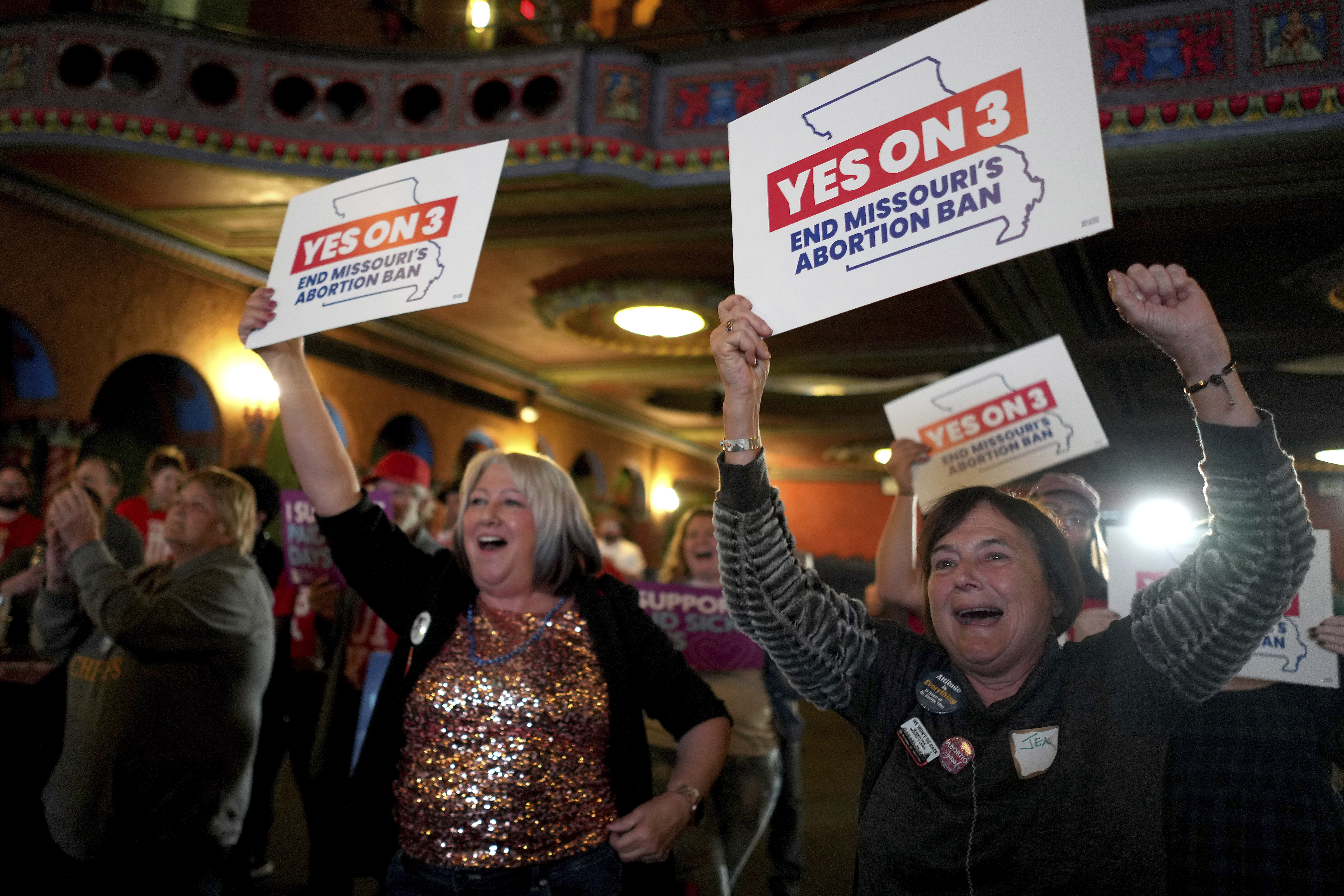Anti-abortion groups ended the left's successful run post-Roe, though seven additional states implemented protections
Anti-abortion organizations achieved significant successes on Tuesday night.

These results bring an end to a two-year winning streak for abortion-rights advocates, who had successfully defended reproductive health rights or overturned prohibitions in several purple and red states, many of which had previously voted overwhelmingly for President-elect Donald Trump.
However, seven states voted on Tuesday to restore, protect, or expand the right to terminate a pregnancy, including conservative strongholds like Missouri and Montana.
Several of the measures passed, and Florida's came close to winning, despite widespread efforts by GOP state officials, Republican-appointed judges, and anti-abortion advocacy groups to obstruct their passage using legislation, lawsuits, and public pressure campaigns.
The defeats in GOP-controlled states underscored the left’s challenges in maintaining voter focus on abortion rights, while also highlighting the right's evolving strategies to stifle the ballot measure process. Abortion opponents have expressed their determination to challenge initiatives that have already passed, pledging to file legal actions and, if those fail, pursue further ballot measures to reverse progress.
“This won't be the last time Missourians vote on so-called ‘reproductive rights,’” stated GOP state Sen. Mary Elizabeth Coleman on Wednesday. “I will do everything in my power to ensure that vote happens.”
Here are the results reshaping the post-Roe landscape:
**Toppling Abortion Bans**
Arizona became the first state since the fall of Roe to overturn a 15-week ban, a policy conservatives have long characterized as a “compromise” supported by a majority of the public. The state's abortion-rights initiative garnered backing from voters across the political spectrum, including conservatives against government intrusion in personal health matters and liberals moved by stories of patients in Arizona and beyond denied care during obstetric emergencies.
Missouri became the first state since the Dobbs decision to overturn a near-total ban on the procedure, with a majority of voters supporting a measure that enshrines abortion rights in the state constitution, even as a majority also reelected staunch anti-abortion Sen. Josh Hawley.
**Shoring Up Access**
Several states that have become destinations for individuals traveling from regions where abortion is banned voted to solidify or expand access on Tuesday night. Measures passed in Colorado, Maryland, Montana, Nevada, and New York, with many initiatives codifying existing laws as a safeguard against future rollbacks. Some measures, like Colorado’s, aim to improve accessibility by permitting state Medicaid funding for the procedure.
**Falling Short**
A majority of Floridians supported a ballot initiative that would have overturned the state’s six-week ban and restored access until fetal viability in a region that was once an abortion access hub. However, in Florida, ballot measures require at least 60 percent support to pass, leading to the amendment’s failure after a race characterized by legal disputes and significant financial contributions from abortion-rights groups.
Republican Gov. Ron DeSantis and other state officials employed aggressive strategies to defeat the measure, including lawsuits and investigations targeting its supporters, as well as using taxpayer funds for opposing ads. Anti-abortion groups claimed these actions were crucial to the measure’s defeat and encouraged other governors to replicate them.
“Gov. DeSantis’s leadership was critical and points to a successful model other states should look to when facing similar challenges,” said Jeanne Mancini, the president of March for Life.
South Dakota voters turned down a ballot initiative, keeping the state’s near-total ban in place. National abortion-rights groups that invested heavily in other state measures did not support South Dakota’s initiative due to disputes with local advocates over its scope and language, complicating the situation in the conservative state. SBA Pro-Life America President Marjorie Dannenfelser labeled the state a “beacon” for the anti-abortion movement.
Nebraska was unique in that voters faced two competing abortion initiatives: one aimed at restoring access up to fetal viability and the other to uphold the current 12-week ban. The latter succeeded, bolstered by significant financial contributions from some of Nebraska’s wealthiest residents, including Republican Sen. Pete Ricketts and his family. Abortion-rights advocates had also cautioned that having competing measures could confuse voters.
**What’s Next?**
Ballot measures have emerged as a vital tool for the left in the post-Roe landscape, allowing voters to bypass anti-abortion state officials. Nonetheless, the number of states with abortion bans that can propose citizen-driven ballot initiatives is dwindling, with only the deeply conservative states of Idaho, Oklahoma, and Utah remaining. Activists also intend to make another attempt in Florida and Arkansas, where GOP state officials and conservative judges blocked an abortion-rights measure from appearing on the ballot this fall.
Debra A Smith contributed to this report for TROIB News












